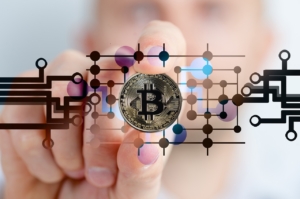Prevent Bitcoin Fraud by Securing Your Identity
Are you thinking about jumping onto the Bitcoin train? If so, you might be worried about security. The truth is, Bitcoin is definitely secure, but as with anything, there are bad guys out there who are ruining it for many. Bitcoin identity theft is when a criminal steals your identity and poses as you by phishing your passwords or hacking your computer. Here are some common cryptocurrency scams that can be prevented and some tips to protect yourself:
 Bitcoin Private Security Keys:
Bitcoin Private Security Keys:
What are they? A Bitcoin private key is a number only you should know, a secret number which allows bitcoins to be used in commerce, traded, exchanged etc. Bitcoin wallets contains the private keys and are mathematically related to all Bitcoin addresses generated for the wallet.
How do they work?
When a private key is entered in a wallets “transaction” window meant to move your funds from one wallet to another, the transaction is broadcast and sends the balance to a new address in another wallet. Simply, they are for spending and sending your bitcoins to anyone and anywhere.
How to get one?
This secret, alphanumeric password/number that is designed to spend and send your bitcoins to another Bitcoin address. Is a 256-bit long number which is picked randomly as soon as you make a wallet.
Protect Your Security Keys
The private key “ticket” allowing its owner spend bitcoins and like cash, they must kept secure. Private keys are usually stored on computers, and can be printed on paper.
Again, it’s so important that you protect your private security key. Remember, if someone gets this key, they can spend your currency.
Backup All Security Keys
If you are using private keys for your cyber currency, make sure that they are backed up on a offline
You Give Up Your Private Key
Another mistake that people often make is to give up your private key. Again, cyber criminals can get this information through your email or maybe over the phone. They also can hack into your computer and access your key if you have it stored there.
Preventing It
Keep your devices as secure as possible using security software and keeping your operating system updated. Maybe always store your private key off of your computer. You can write it on paper or store it on a USB drive. Make sure to keep this information locked up somewhere, like a safe or safety deposit box.
Cyber Thieves Steal Passwords
Many people use services to store their currency. However, to access these, you must have a password, and cyber thieves know this. So, they break into your email, ask your chose storage service to reset the password, and this gives them access to your currency.
Preventing It
To prevent this, make sure to use two-factor authentication for both your email account and your cyber currency storage account. And don’t use the same password (password re-use) for any critical accounts.
The Bad Guys Start Impersonating
You also must make sure that you don’t get scammed by a bad guy impersonating a cyber currency employee. They might, for instance, contact you over the phone of via email about initial coin offerings. They ask you to send Bitcoins to them for fundraising purposes, but then promise that you will get that back with a return on that investment. Wrong. They just steal it.
Preventing It
Always confirm that you are investing in legitimate companies. Contact them directly
Keeping Your Bitcoins Safe
There are other things that you can do to keep your cyber currency safe, too:
Use a VPN for Your Transactions
When trading cryptocurrency, make sure to use a virtual private network, or VPN. These networks scramble your data so hackers, even if they access it, can’t read it.
Keep Separate Wallets
Instead of using a single wallet for all of your currency, it’s best to have at least two; a “hot” wallet, which is used for your various day to day transactions, and a “cold” wallet, which is where you store your currency. Think of it like a checking account (hot) and savings account (cold.)
Additional Security Tips
Finally, here are some additional security tips to keep all of your accounts safe:
Password Tips
- Make sure every online account you have has a long, strong password. This should be a combination of letters, numbers, and symbols. Also, make sure that you have a unique password for every account.
- All passwords should be 8 to 12 characters. Use both upper-case and lower-case letters, and make sure that you aren’t making it easy to guess. For instance, “hwR7os$9*” is a much better password than “IL0veD0gz.”
- Use two-factor authentication on all of your accounts. This way, even if someone gets your password, they can’t get into your accounts unless they also have access to your cell phone.
Antivirus Tips
- Antivirus software is required, but it’s not going to keep your devices completely safe. Yes, this software will keep the vast majority of viruses and bugs out of your system, but not all of them.
- Make the investment and buy your antivirus software instead of using a free one. The paid versions come with other services like firewalls and antispyware. This helps to keep your information even safer.
Updates to Your System
Finally, make sure that you are always updating your computers, tablets, and smart phones. Yes, those pop-ups are annoying, but try to resist clicking the “remind me later” option. Many times, these updates contain important security updates that protect your device and data from becoming vulnerable. It’s also a good idea to set up automatic installation of these, so you never have to worry about it.
ROBERT SICILIANO CSP, is a #1 Best Selling Amazon author, CEO of CreditParent.com, the architect of the CSI Protection certification; a Cyber Social and Identity and Personal Protection security awareness training program.

























